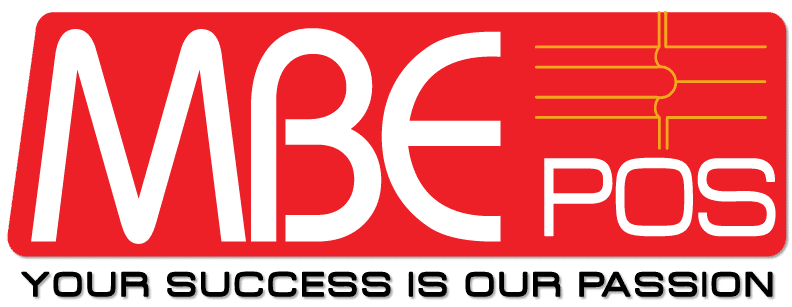A good POS system can help streamline your restaurant’s operations, improve efficiency, and boost profitability. However, this blog will closely examine restaurant POS systems and the available types. And provide an overview of the best POS systems for restaurants currently on the market.
Running a successful restaurant requires more than delicious food and great service. However, restaurant owners must also have the tools and technology to manage their operations effectively to stay competitive. One essential tool that restaurants can only do is a point of sale (POS) system.
We’ll also discuss the importance of restaurant management software and the key features to look for in a POS system. So whether you’re a new restaurant owner or looking to upgrade your existing POS system. Discover how the right restaurant POS software can revolutionize your restaurant operations.
-
Introduction To Restaurant POS Systems
POS restaurant systems are software and hardware solutions that help restaurant owners and managers streamline operations, improve efficiency, and enhance the overall customer experience.
These systems provide tools for taking orders, processing payments, tracking inventory, managing staff, and generating reports. By using a POS system, restaurants can reduce the risk of errors, increase the speed of service, and gain insights into their business performance.
Also Read: Which POS Solutions Are Required To Run A Business?With the growing demand for online ordering and contactless payments, many POS restaurant systems also offer mobile and cloud-based solutions that can be accessed from anywhere. Overall, top POS systems for restaurants provide essential tools for modern restaurants looking to stay competitive and meet the changing needs of their customers.
-
Types Of Restaurant POS Systems
Several POS restaurant systems are available in the market today, each with its features and benefits. Here are some of the most common types:
On-premise POS systems: These are traditional systems, one of the best pos for restaurants requiring on-site installation, usually on a computer or server. They offer high security and customization options and suit restaurants with stable internet connections.
Cloud-based POS systems are hosted on remote servers and accessed through an internet connection. They are more flexible, scalable, and cost-effective than on-premise systems, as they do not require extensive hardware or software installation.
Mobile POS systems allow servers to take orders and process payments using mobile devices such as tablets or smartphones. They are ideal for fast-paced environments where mobility is essential.
Self-service kiosk systems enable customers to place orders and make payments using interactive kiosks. They offer convenience, speed, and accuracy and can reduce wait times and long lines.
Online ordering systems enable customers to place orders online through a website or mobile app. They are convenient for customers and help restaurants reach a wider audience, especially during the COVID-19 pandemic.
Also Read: An Online Payment Gateway Can Boost Your SalesOverall, choosing the right POS restaurant system depends on each restaurant’s specific needs and requirements.
-
Restaurant Management Software
Restaurant software is a computer program that helps restaurant owners and managers streamline their day-to-day operations and improve overall efficiency. This software typically includes tools that help manage various aspects of restaurant operations, such as inventory management, staff scheduling, menu planning, table management, order taking, payment processing, and reporting.
One of the key benefits of restaurant management software is that it can help restaurant owners and managers save time and reduce the risk of errors. For example, inventory management tools can help keep track of ingredients and supplies, while staff scheduling tools can help ensure that the right staff members are assigned to the right shifts.
Table management tools can help optimize seating arrangements, while order-taking tools can help ensure that orders are accurately recorded and sent to the kitchen.
Another benefit of restaurant management software is that it can provide valuable insights into business performance. Reporting tools can generate data on sales, customer behaviour, and employee performance, which can be used to make informed business decisions and improve overall profitability.
Overall, restaurant management software is essential for modern restaurant owners and managers who want to streamline operations, improve efficiency, and enhance the customer experience.
-
Key Features of Restaurant POS Software
Restaurant POS (Point of Sale) software has various features that can help restaurant owners and managers streamline operations, improve efficiency, and enhance customer experience. Here are some key features of restaurant POS software:
Order management: POS software enables restaurants to take orders quickly and accurately through mobile devices or traditional terminals. It can help manage different order types, such as dine-in, takeout, and delivery, and even track real-time table statuses.
Payment processing: POS software can quickly and securely process payments through traditional methods like cash and credit cards or newer mobile payments and digital wallets.
Inventory management: POS software can help restaurants track inventory levels and monitor the use of ingredients and supplies. It can also generate alerts when inventory levels are low, helping managers order supplies promptly.
Menu management: POS software can help restaurants create and manage menus, including item descriptions, prices, and availability. It can even recommend it upsells and suggest complementary items to customers.
Reporting and analytics: POS software can generate detailed reports on various aspects of restaurant operations, such as sales, labour costs, inventory usage, and customer behaviour. This data can help managers make informed decisions and optimize business performance.
Customer management: POS software can store customer information, such as preferences, order history, and contact details, allowing for personalized marketing and promotions.
Overall, restaurant POS software is essential for modern restaurants looking to improve efficiency, increase revenue, and enhance customer experience.
Conclusion
If you are a restaurant owner and want a POS system for your business, it’s the right time to get one. However, before getting considering the functions and features mentioned earlier in this blog.


